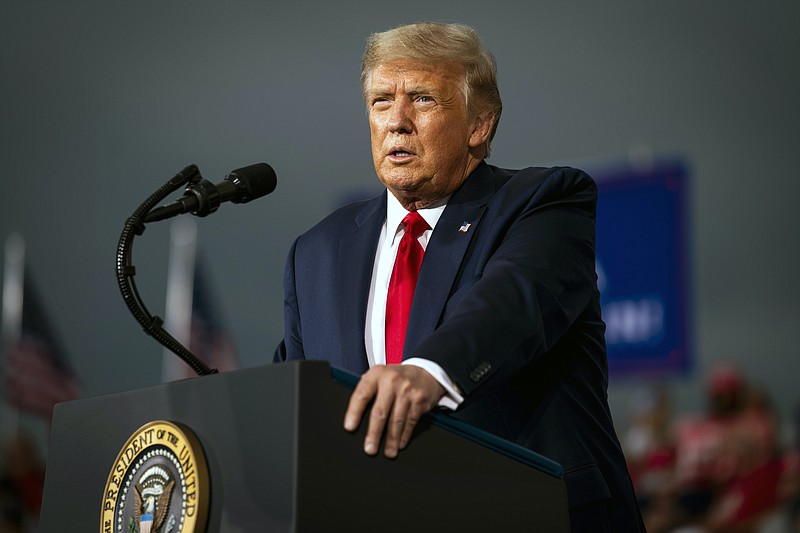The U.S. death toll from the COVID-19 pandemic stands at 200,000 and people and counting. While the majority of the almost 7 million Americans infected by the coronavirus have made full recoveries, a substantial minority has not. Some experience persistent fatigue. Others report lingering symptoms that include shortness of breath, difficulty concentrating, headache, and painful joints. A small number of children have experienced a complex inflammatory illness of multiple organs following infection.
Against this background comes the stunning revelation in Robert Woodward's newly released book, "Rage," that, early in the pandemic, President Trump recognized the seriousness of the outbreak but chose to downplay it. "This is deadly stuff I wanted always to play it down. I still like playing it down because I don't want to create a panic." Imagine the fate of a physician who detected a serious, infectious illness in his patient but chose to withhold that information. He would be charged with malpractice.
The president has continued to minimize the seriousness of the pandemic.
Despite the consensus of experts in public health that masks reduce transmission of the COVID-19 virus, the president has not issued a national mandate to wear this protection. He has neither worn a mask nor encouraged attendees at his rallies to do so. He has not encouraged social distancing at these gatherings, the most recent of which include an indoor campaign event in Nevada and a large roundtable in Arizona.
Two leading experts in infectious diseases, Dr. Anthony Fauci and Dr. Deborah Birx, were named to the president's COVID-19 task force. As briefings on the pandemic became progressively politicized, neither physician was afforded much opportunity to speak or respond to questions from the media. They became props for the president. Dr. Fauci has participated in interviews in which he has emphasized preventive measures and has provided realistic updates on the development of a vaccine.
For decades, the Centers for Disease Control and Prevention has published Morbidity and Mortality Weekly Report ((MMWR) to provide vital data on epidemics to national, state, and local public health officials and physicians. Politico recently reported efforts to compromise the content of MMWR. Since his appointment in April as spokesman for the Department of Health and Human Services, Michael Caputo, a former aide to the Trump campaign with no medical background, has sought to review and edit MMWR to delay or to remove content that runs counter to the president's public statements on the pandemic. Caputo has since taken medical leave.
On Aug. 10, Trump named Scott W. Atlas, M.D., to his advisory panel on the pandemic. A former professor of neuroradiology at Stanford University Medical School, Atlas has no training or background in infectious diseases or public health. He is currently a member of the Hoover Institute, a conservative think-tank based at Stanford. He has criticized the slow pace of re-opening schools and businesses. He has questioned the effectiveness of masks and has advocated reduced testing for COVID-19. He doubts if children can transmit the virus to others. Dr. Atlas has become a fixture at briefings on the pandemic.
On Sept. 9, 78 physicians and medical researchers at Stanford released a letter, which criticized Atlas for "falsehoods and misrepresentations of science in his public statements." The statement concludes, "Failure to follow the science, or deliberately misrepresenting the science, will lead to immense avoidable harm."
We have two streams of information on the COVID-19 pandemic: a political one with no basis in science and a professional one based on the work of dedicated scientists with no political agenda. Sadly, the latter is overshadowed in the public arena.
COVID-19 directly affects the health of adults and children across our nation and the world. Management of their welfare must be entrusted to people of medical science.
Contact Clif Cleaveland at ccleaveland@timesfreepress.com.
